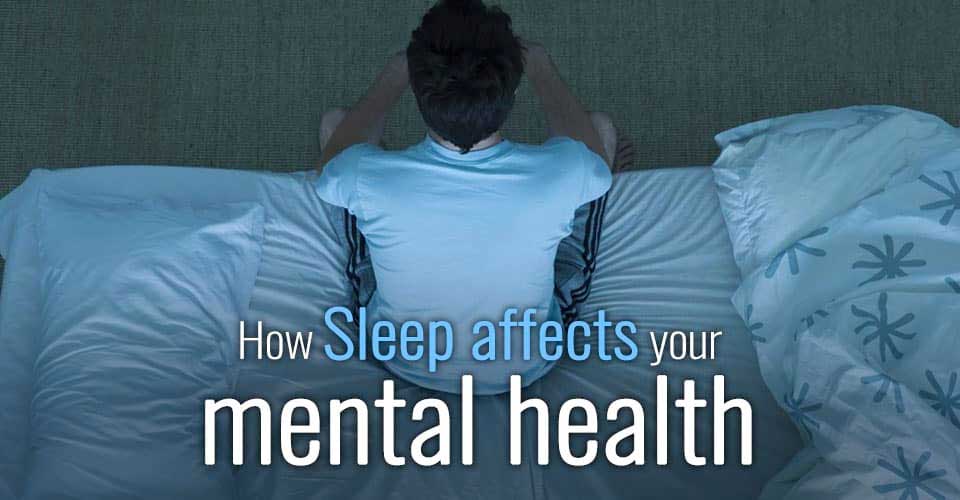Lack of sleep can trigger mental health symptoms, but sleep struggles can also be an indicator of mental illness itself. This post takes a look at the importance of sleep and how sleep impacts our mental health.
How Much Sleep is Enough?
Adults need at least six hours of sleep per night. Many people need more than this to function at their best.
When we shortchange ourselves on sleep, by choice or necessity, our health can be negatively impacted. Even a single night of insufficient sleep can lead to slower thought processes, difficulty concentrating or learning, slower reaction times, impaired judgment, and more.
Lack of sleep can also be a trigger for relapse for people who are recovering from an addiction. Adequate sleep is important in maintaining sobriety.
Prolonged sleep issues can result in a higher incidence of depression, anxiety, heart issues, cancer, weakened immune system, weight gain, and more.
Sleep Requirements for Teens
Teenagers need significantly more sleep than adults – closer to nine hours per night. In adolescents, lack of sufficient sleep is particularly detrimental to health. The vast majority of high school students do not get enough sleep. One study showed that for each hour of sleep less than the recommended amount, teenagers experienced:
- 38 percent increase in sadness
- 42 percent increase in suicidal thoughts
- 23 percent increase in substance abuse
- 58 percent increase in suicide attempts
Sleep for the Elderly
Sleep issues are common for older adults. Senior citizens need as much sleep or more than other adults, but they often have difficulty getting the sleep they need. This can be related to common but treatable causes, such as sleep apnea, sleep disorders, chronic pain, restless leg syndrome, etc.
When older adults do not receive adequate rest, they are likely to experience:
- Daytime drowsiness
- Increased fall risk
- Increased anxiety and depression
- Decreased quality of life
- Heightened mortality
Does Lack of Sleep Indicate Mental Illness?
While getting less sleep does not cause mental illness, mental health concerns can interfere with sleep. According to the National Alliance on Mental Illness, lack of sleep can indicate an already present mental health problem/diagnosis.
A few things to keep in mind when it comes to sleep and mental health:
- When a person who is experiencing low mood, decreased energy, and/or appetite changes begins to wake in the early morning, this can signal depression.
- Lack of need for sleep can indicate mania if an unexplained burst of energy is present as well.
- People with anxiety disorders or PTSD may have trouble falling asleep. If they can fall asleep, they may find themselves awakened by panic attacks or nightmares.
How to Get Better Sleep
In order to improve the likelihood of getting better sleep, it’s important to form good sleep habits. Good sleep habits can include:
- Avoiding naps (or maintaining a short power nap if necessary)
- Reducing consumption of caffeine
- Having (and maintaining) a regular bedtime routine
- Avoiding alcohol (alcohol interferes with REM sleep)
- Keeping your sleep environment cool, dark, quiet, and comfortable (consider a nice mattress, pillow, and bedding)
In addition to good sleep habits, relaxation techniques such as meditation, deep breathing, and muscle relaxation can be helpful.
Sometimes, medication may be necessary to help with sleep. Always discuss this with your doctor first. They can help you decide which medication may be most helpful, as well as help you assess if any other medications you are already taking may be interfering with your sleep. Over-the-counter options that can be helpful for some people include chamomile tea or melatonin supplements.










